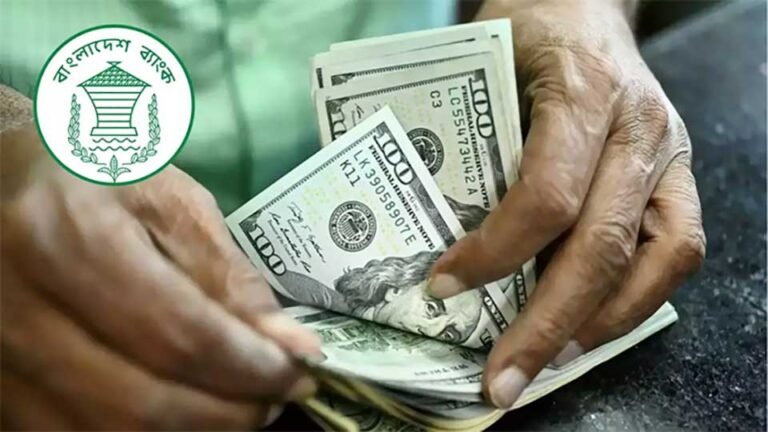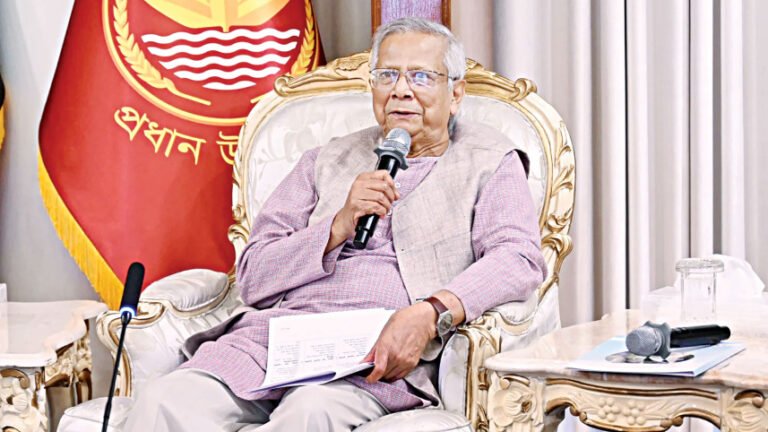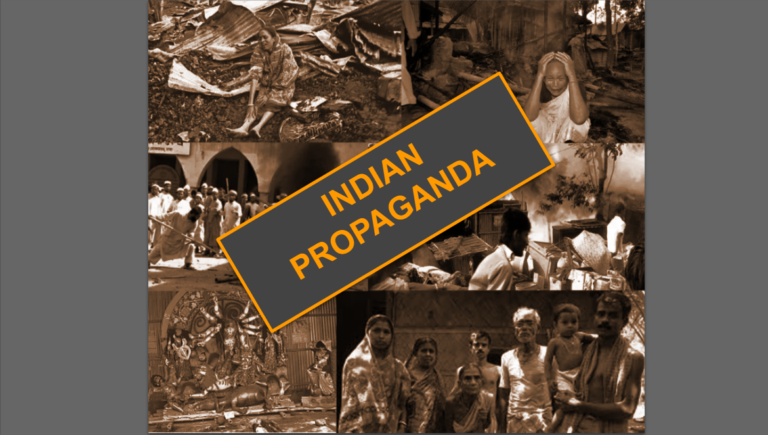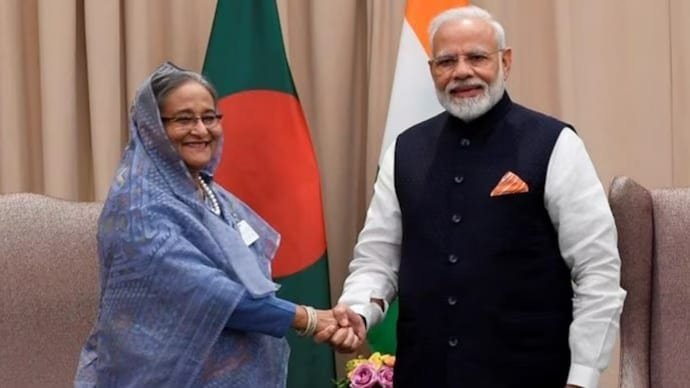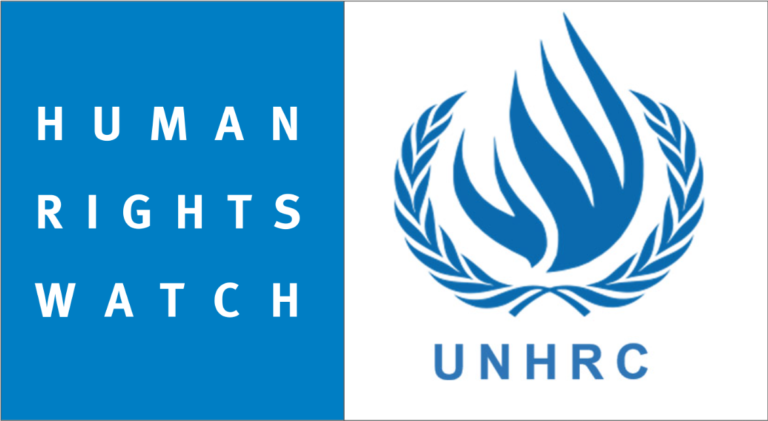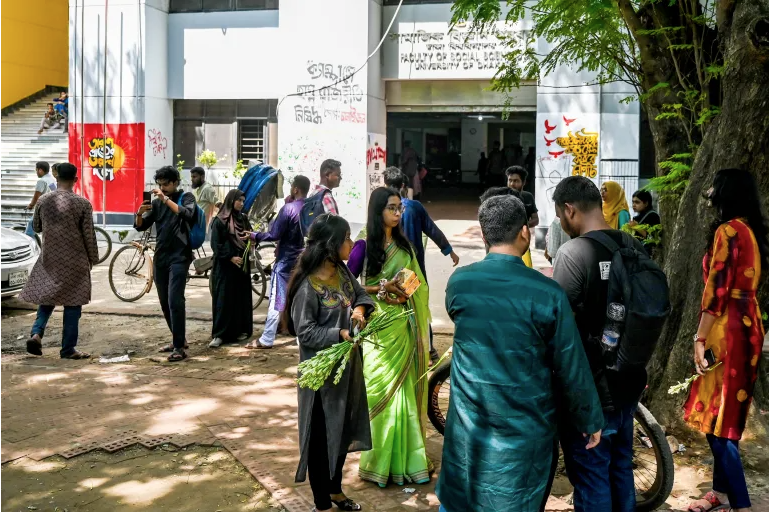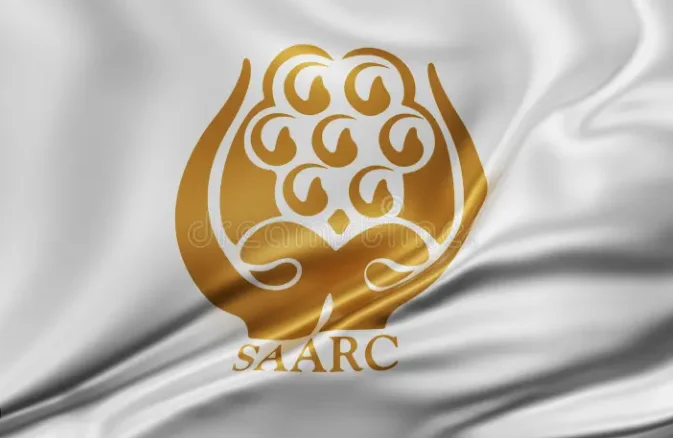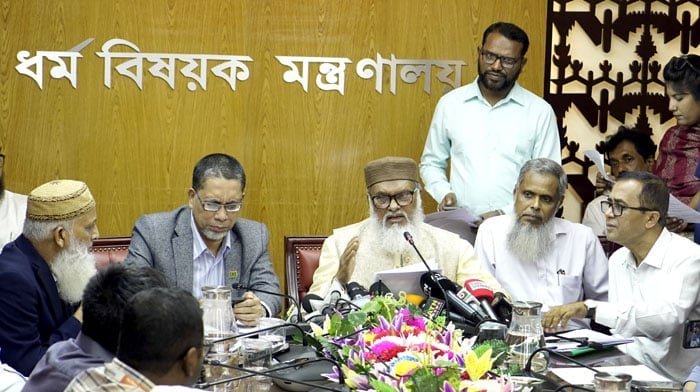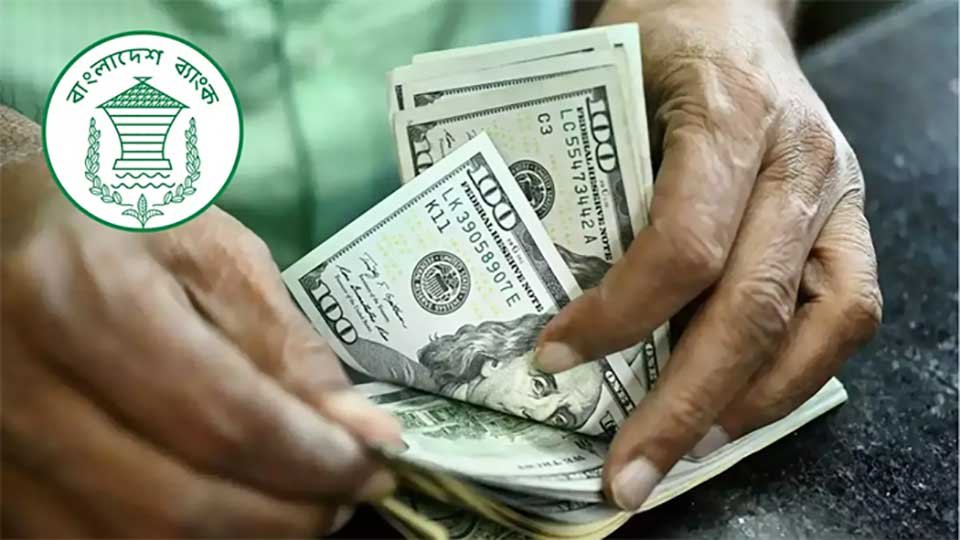Dhaka University has reopened, weeks after being closed by authorities following deadly antigovernment protests.
Students have returned to classes at Dhaka University in Bangladesh after a prolonged closure caused by a student-led movement that led to the ousting of former Prime Minister Sheikh Hasina.
Tens of thousands protested on campus and in the nearby Shahbagh area, with demonstrations against job quotas evolving into a broader movement to end Hasina’s 15-year authoritarian rule.
As the protests escalated in July, the authorities shut down the university in an attempt to quell the unrest, which resulted in hundreds of deaths.
Several key student leaders, enrolled at the university, were detained by plainclothes police and held for several days.
On Sunday, the university was once again bustling with activity. Students gathered in groups along tree-lined walkways, chatting and buying snacks at canteens.
According to assistant proctor Mohammad Mahbub Quaisar, appointed after the resignation of administrators loyal to Hasina, classes had resumed in nearly all departments, with only four or five still on hold. He told AFP news agency, “Students are attending in a joyous mood.”
Hasina’s government faced accusations of widespread abuses, including the detention and extrajudicial killings of political opponents.
A preliminary United Nations report stated that more than 600 people were killed in the weeks leading up to Hasina’s removal in early August, noting that the actual number was “likely an underestimate.”
Since Hasina’s exile to neighboring India, several cabinet ministers and senior party members have been arrested, and her government’s appointees have been removed from key institutions, including the courts and the central bank.
In the Shahbagh neighborhood, newly painted murals urge the public to “destroy the iron doors of prison” and celebrate Bangladesh’s “rebirth.”
“It was like we were in an oppressive era when we could not say anything,” said 25-year-old master’s student Kalimulla Al Kafi, reflecting on Hasina’s crackdown.
“Today it feels like I am attending classes with freedom,” he said. “We can express ourselves freely.”




